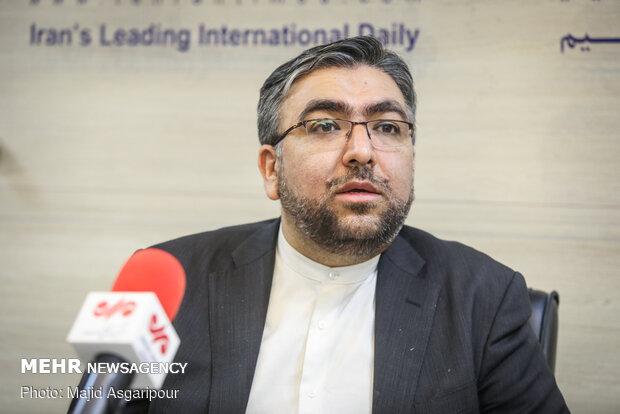The spokesman of the National Security Commission of the Iranian Parliament Abolfazl Amoei made the comments in reference to the United Nations Security Council's (UNSC) recent official announcement of an end to restrictions it had imposed on Iran’s missile program.
Iran took retaliatory measures against the European countries for not abiding by the JCPOA obligations and their refusal to terminate the previous UN sanctions against Iranian defense capabilities and missile program, Amouei said.
In a note sent to the member states of the UN, the secretariat of the UNSC officially ended curbs set out in paragraphs 3, 4, and 6 (c) and (d) of Annex B to Resolution 2231, which endorsed the 2015 nuclear deal.
"The statement and action of the European Council is a gross violation of the text of the 2015 agreement known as JCPOA. The Europeans, who consider themselves to be committed to this text, clearly violated one of its provisions," the lawmaker said.
"According to JCPOA, on October 18 this year, we entered the eighth year of JCPOA implementation. Various events were supposed to happen on this day, i.e. on the day of the transition, such as the restrictions that existed for our missile program must be removed in the framework of Resolution 2231. International restrictions on the export and import of items related to Iran's missile program should also be lifted. This happened and the Political Assistant Secretary General of the United Nations reported the explanation that an amendment was made on the United Nations website where the restrictions were given in this regard. Therefore, there are no international restrictions on Iran's missile program," Amoei further said.
"Meanwhile, there were other commitments on this day. The European Union should have removed some people from its sanctions list in the eighth year and on the day of the transition and removed the restrictions on Iran's arms trade, but the European Council announced in a letter and statement that it will not fulfill this commitment," he added.
"This action of the Europeans was in gross violation of the JCPOA and was rejected by Iran. Iran had a legal response based on paragraph 26 of the JCPOA, according to which if the other party violates the deal, Iran also has the right not to fulfill its own portion of obligations; One of Iran's obligations in the eighth year was that the government of the Islamic Republic of Iran had to submit the bill for Iran's membership in the Additional Protocol to the parliament. Considering the violation of the deal and the potential of paragraph 26 of the JCPOA, the government did not submit this bill to the parliament, although due to the repeated violation of the deal, there was no room for the approval of the bill in the parliament," the senior lawmaker further said.
"Due to the action of Europe and other actions of the United States in not fulfilling their obligations, Iran [government] did not submit the bill of acceptance of the Additional Protocol to the parliament in a retaliatory measure," Amoei explained.
"The international arms embargo against Iran was lifted in 2020. Now the missile-related sanctions have been lifted, but the European Union did not implement the arms embargo that was supposed to be lifted in 2023, which was a violation of the agreement, and Iran also took a retaliatory measure," he concluded.
KI/ISN1402072920640

























Your Comment